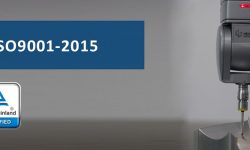One of the steps involved in taking your concept from the prototype development stage to market is determining the lead times involved in its manufacture. Another important element to consider is the price quote. There are a number of — sometimes surprising — factors that could affect both the price you’re quoted and the lead times you’ll experience when working with a renowned and trustworthy rapid prototyping company. Below are five to keep in mind when your team is developing its timeline.
- Information
The information that you communicate to the manufacturer affects the lead time and price quote for your product. Too little information or incorrect information adds to the lead time if back and forth communication is necessary to gather all the data needed. Conversely, too much of the wrong type of information can result in wasted time filtering through all the data to find the components necessary to start your project. Sometimes a phone call to the manufacturer is quicker than a series of emails sent back and forth.
- Materials
The choice of materials used in your product, as well as the amount, are important factors that affect its price and the amount of time it takes to manufacture it. In some cases, a particular material could cost more because of its unique physical, chemical and/or mechanical properties. Some materials require build processes that are quicker or that take longer. Still others lend themselves to technologies that can shave precious time and steps off the manufacturing process while others do not.
- Engineering
The engineering process involved in prototype development and manufacturing are grounded in the same concepts with vastly different applications and nuances. Even the most meticulously engineered part from your design team could require additional services once it reaches the manufacturer. These could be necessary to accommodate properties like shrink, draft and other unforeseeable elements.
- Services
Each additional service that your product requires can not only increase the lead time, it can also bump the price up as well. For example, rapid prototyping means that an order is fast-tracked so that it’s manufactured quickly so lead times are generally a matter of days. If your product also requires surface finishing, though, that can increase both the price you are quoted and the lead time you can expect to have it back in hand.
- Testing
A high-quality prototype manufacturer relies on the quality of the parts they produce. In fact, it is this element that a manufacturer’s reputation rests on so squarely. Once a manufacturer’s reputation for quality has been tarnished, it’s often difficult to get it back. This is why reputable manufacturers always test any products they develop for their customers before they ship. The nature of the testing can vary, though, with more complex testing taking more time. This, in turn, can not only increase the lead times you experience, it can also increase your price. Conversely, a component that requires only minimal testing before it can be shipped off to you will have shorter lead times and a lower price quote in comparison.
- Complexity
A complex design is likely going to involve a longer lead time and a higher price quote when compared to a simpler component. If your product is comprised of several different materials that each require a particular process in order to meet the design parameters, this increases its complexity as well.
The manufacturer you trust with your design must be reliable, technologically-advanced and maintain best practices in testing. 3ERP provides top-notch manufacturing in their state-of-the-art manufacturing facility for a range of industries. Even projects that have proven to be too difficult for others have been successfully completed by the team at 3ERP. Contact their responsive engineering and sales teams to learn how they can make your ideas and designs a reality.







